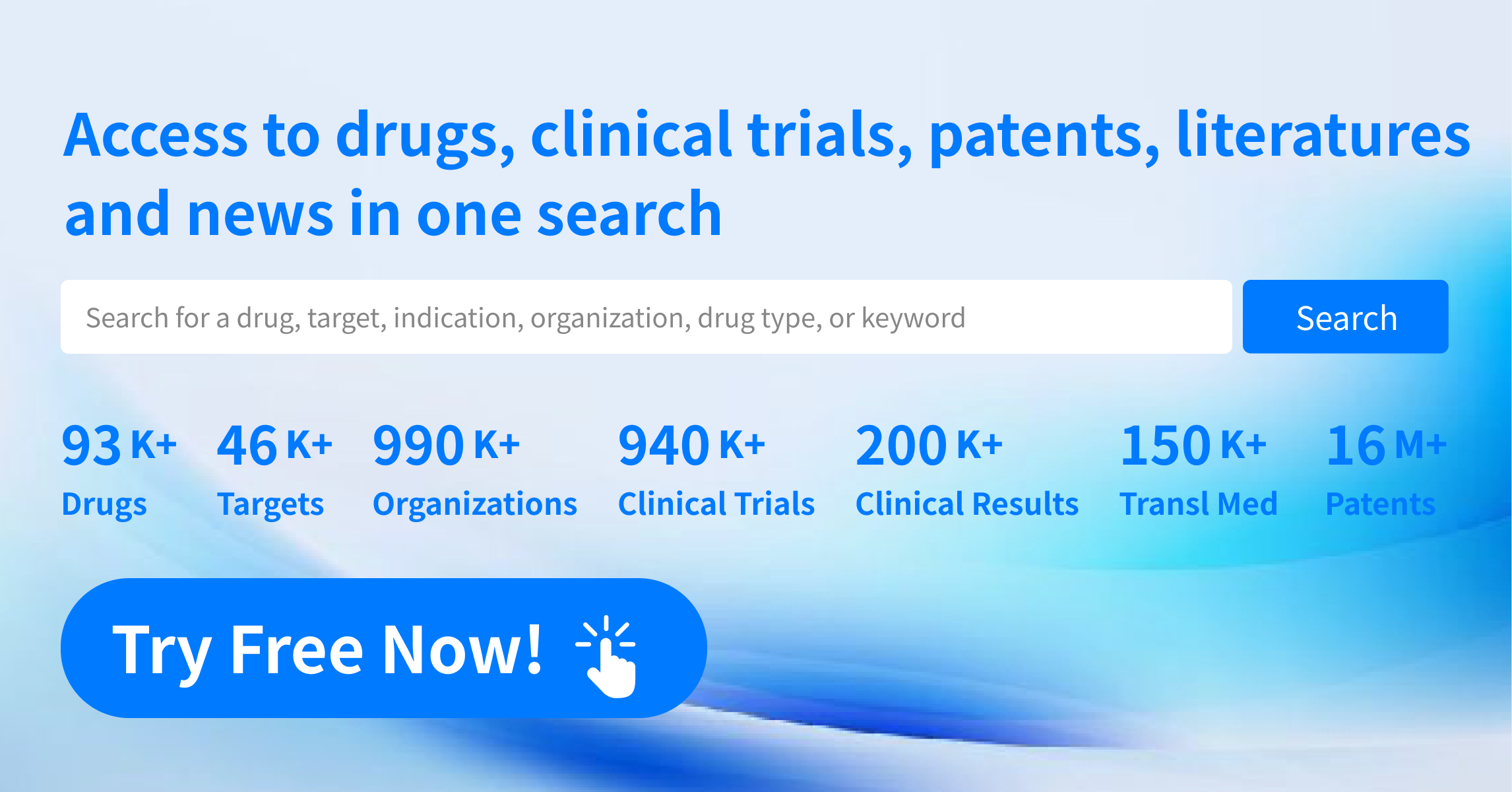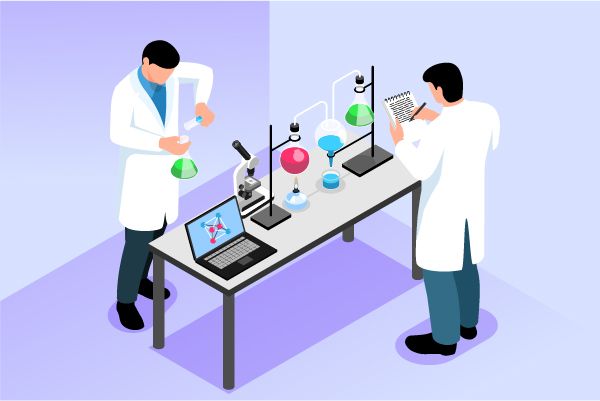Pharma Frontiers: Daily Digest of Global Pharmaceutical News – Sep 10
1.Akeso Biopharma Presents Phase III Data for First-line NSCLC Therapy
On September 8, Akeso Biopharma presented groundbreaking Phase III clinical trial data at the 2024 World Conference on Lung Cancer for its globally innovative PD-1/VEGF bispecific antibody Ivonescimab, developed in-house. The trial, known as HARMONi-2 (AK112-303), compares Ivonescimab monotherapy to Pembrolizumab monotherapy for first-line treatment of PD-L1-positive (PD-L1 TPS ≥1%) locally advanced or metastatic NSCLC.
HARMONi-2 is the world's first randomized, double-blind, controlled Phase III clinical study to show significantly positive results in comparison to Pembrolizumab. In the intention-to-treat population (ITT), Ivonescimab monotherapy significantly prolonged progression-free survival (PFS) compared to Pembrolizumab monotherapy, with median PFS (mPFS) of 11.14 months vs. 5.82 months, respectively, and a PFS hazard ratio (HR) of 0.51 (P<0.0001), indicating a 49% reduction in the risk of disease progression or death in the Ivonescimab group. Ivonescimab also showed a higher objective response rate (50.0% vs 38.5%) and disease control rate (89.9% vs 70.5%) for first-line treatment in PD-L1-positive NSCLC patients, demonstrating strong anti-tumor effects. As of this publication, overall survival (OS) data from HARMONi-2 are not yet mature. Subgroup analysis revealed that Ivonescimab's efficacy outperformed Pembrolizumab regardless of factors such as age, gender, ECOG score, PD-L1 expression, pathological type, or the presence of liver or brain metastases.
2.Otsuka’s Third-Generation Bcr-Abl Inhibitor Ponatinib Approved for Market in China
On September 9, the NMPA (National Medical Products Administration) website indicated that Otsuka Pharmaceutical’s ponatinib has been approved for marketing in China for the following indications:
1)Chronic myeloid leukemia (CML) in patients who are resistant or intolerant to previous treatments.
2)Relapsed or refractory Philadelphia chromosome-positive (Ph+) acute lymphoblastic leukemia (ALL).
3)T315I-positive CML or T315I-positive Ph+ ALL.
Ponatinib is a third-generation Bcr-Abl inhibitor designed to overcome the T315I mutation. It exhibits high specificity and potent inhibitory activity against the T315I mutant Bcr-Abl kinase, effectively addressing resistance issues associated with current Bcr-Abl inhibitors caused by kinase mutations. Additionally, ponatinib shows inhibitory effects on other kinases, including VEGFR, PDGFR, FGFR, EPH receptors, SRC family kinases, as well as KIT, RET, TIE2, and FLT3. Ponatinib was first approved by the FDA in December 2012.
3.Haisco’s DPP-1 Inhibitor Proposed for Breakthrough Therapy Designation
On September 9, the CDE (Center for Drug Evaluation) website indicated that Haisco’s HSK31858 tablet is being considered for inclusion as a breakthrough therapy, targeting non-cystic fibrosis bronchiectasis. HSK31858 is a novel, class 1 drug developed independently by Haisco. It is an oral, potent, and highly selective small-molecule inhibitor of dipeptidyl peptidase 1 (DPP1), intended for the treatment of bronchiectasis and lower respiratory diseases caused by acute lung injury/acute respiratory distress syndrome (ARDS). Currently, no drugs targeting this mechanism have been approved globally.
According to Haisco’s website, HSK31858 is in Phase II clinical trials. Notably, in November 2023, Haisco entered an agreement with Chiesi to license the rights to HSK31858 outside of the Greater China region (including Hong Kong, Macau, and Taiwan). Under the terms of the agreement, Haisco will receive an upfront payment of $13 million, with milestone payments based on the development and commercialization stages of HSK31858. Haisco could earn a total of up to $462 million, as well as double-digit percentage royalties on annual net sales.
4.Kelun Botai’s Trop2 ADC Sacituzumab Tirumotecan to be Showcased at ESMO
Kelun Botai will present safety and efficacy data from two Phase II studies of its Trop2-targeting ADC Sacituzumab Tirumotecan (sac-TMT) at the ESMO conference. The data include results from sac-TMT monotherapy in previously treated patients with advanced endometrial cancer (EC) and advanced ovarian cancer (OC). The respective abstracts have already been published on the ESMO website.
According to the ESMO abstract, as of March 5, 2024, a total of 44 patients with endometrial cancer were enrolled. They received sac-TMT at a dose of 5 mg/kg every two weeks, with a median follow-up time of 7.2 months. 52.3% of patients had received at least two prior lines of treatment. The objective response rate (ORR) was 34.1% (15/44), the disease control rate (DCR) was 75% (33/44), and the median progression-free survival (mPFS) was 5.7 months. For patients with high Trop2 expression (IHC-H>200), the ORR was 41.7% (5/12). In the ovarian cancer study, 40 patients were enrolled, with a median follow-up time of 28.2 months. All patients had received at least two prior lines of therapy, with 80% having received three or more prior lines, and 87.5% being platinum-resistant. The ORR was 40% (16/40), the DCR was 75%, mPFS was 6.0 months, and the median overall survival (mOS) was 16.5 months. Among patients with high Trop2 expression (IHC-H>200), the ORR was 61.5% (8/13). For platinum-resistant patients, the mPFS was 6.0 months, and mOS was 16.1 months.
5.Hengrui to Unveil Two New ADC Therapies at ESMO
Hengrui Pharmaceutical will present two ADC drug candidates at the ESMO conference, both in oral presentations. The first is SHR-A1921, a Trop2 ADC, for the treatment of platinum-resistant ovarian cancer. As of March 20, 2024, a total of 46 patients were enrolled in the first-in-human Phase I trial. Among the evaluable patients, the ORR was 48.8% (21/43; 95% CI, 33.3-64.5), the DCR was 97.7% (42/43; 95% CI, 87.7-99.9), with a median duration of response (mDoR) of 6.4 months (95% CI, 4.7-not reached) and mPFS of 7.2 months (95% CI, 4.4-11.1). The median OS has not been reached, but the 6-month OS rate was 91.9% (95% CI, 76.9-97.3).
Hengrui will also present SHR-A1904, a CLDN18.2 ADC, for the treatment of gastric or gastroesophageal junction cancer (GC/GEJC) in a Phase I trial. As of March 18, 2024, a total of 73 patients were enrolled. In the cohort receiving 6.0 mg/kg, the ORR and DCR were 55.6% (5/9; 95% CI, 21.2-86.3) and 88.9% (8/9; 95% CI, 51.8-99.7), respectively. In the 8.0 mg/kg cohort, the ORR and DCR were 36.7% (11/30; 95% CI, 19.9-56.1) and 86.7% (26/30; 95% CI, 69.3-96.2), respectively.
6.Candid Therapeutics Announces Launch and Secures $370 Million in Financing to Tackle Autoimmune Diseases
On September 9, Candid Therapeutics announced its establishment and completion of $370 million in financing, aimed at developing innovative treatments for autoimmune diseases. The company also announced the acquisition of Vignette Bio and TRC004, obtaining the BCMA/CD bispecific antibody from the former and the CD3/CD20 bispecific antibody from the latter. Vignette Bio is a NewCo company founded by Foresite and authorized by EpimAb for EMB-06, while TRC004 is a NewCo company formed by Two River, Third Rock, and authorized by Genor Biopharma for GB261. The financing round was co-led by Venrock Healthcare Capital Partners, Fairmount, TCGX, and venBio Partners, with additional participation from Foresite Capital, Third Rock Ventures, Fidelity Management & Research Company, Samsara BioCapital, Qiming Venture Partners USA, OrbiMed, Boxer Capital, Redmile Group, and Vida Ventures. Candid is focused on developing T-cell engager (TCE) antibodies designed to clear specific B lymphocyte populations, with plans to advance these novel therapies in the autoimmune disease field.
How to obtain the latest research advancements in the field of biopharmaceuticals?
In the Synapse database, you can keep abreast of the latest research and development advances in drugs, targets, indications, organizations, etc., anywhere and anytime, on a daily or weekly basis. Click on the image below to embark on a brand new journey of drug discovery!




